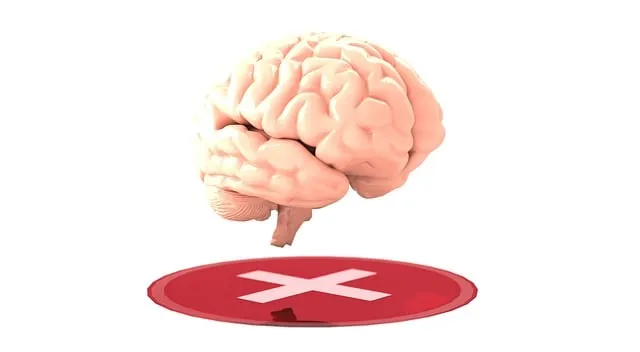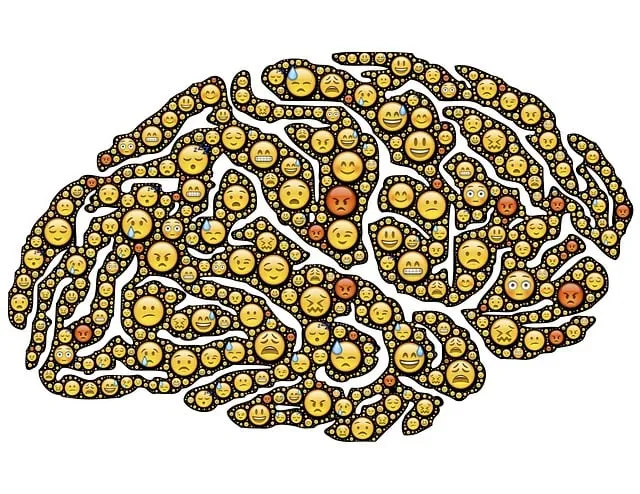Kaiser Permanente's Centennial mental health facility leverages advanced analytics on patient records to identify prevalent mental health conditions, track treatment effectiveness, and tailor interventions precisely. Through staff training in Cultural Competency, Crisis Intervention, and Stress Management, the facility offers a holistic approach. This comprehensive strategy improves patient outcomes and fosters an inclusive environment, setting Kaiser Permanente Centennial apart as a leading mental health provider. The facility prioritizes ethical data collection through informed consent, anonymization, and adherence to strict guidelines, enhancing inclusivity with community outreach programs. Advanced data analysis techniques uncover trends in emotional regulation and social skills, enabling personalized treatment plans, targeted interventions, and innovative programs like the Mental Wellness Podcast Series. Future initiatives include adopting advanced analytics, digital remote support, and partnerships for a more comprehensive and accessible mental wellness ecosystem.
Mental health data analysis plays a pivotal role in understanding and improving patient care at institutions like Kaiser Permanente’s Centennial Facility. This article delves into the intricate process of interpreting mental health data, exploring key aspects from data collection practices at the Centennial Facility to advanced analytical techniques that reveal significant trends. By examining ethical considerations and practical implications, we gain insights that can drive future enhancements in mental health care.
- Understanding Mental Health Data at Kaiser Permanente Centennial Facility
- Data Collection and Ethical Considerations in Mental Health Research
- Advanced Analytical Techniques for Interpreting Mental Health Trends
- Practical Implications and Future Directions for Mental Health Care Improvement
Understanding Mental Health Data at Kaiser Permanente Centennial Facility

At Kaiser Permanente Centennial Facility, understanding mental health data is paramount to delivering effective care. This healthcare provider, recognized for its commitment to patient well-being, employs advanced data analysis techniques to gain insights into the complex landscape of mental health within its community. By meticulously examining trends and patterns in patient records, the facility identifies prevalent conditions, tracks treatment outcomes, and pinpoints areas requiring targeted interventions.
This data-driven approach is further enhanced through specialized training for staff, such as Cultural Competency Training, which ensures a nuanced understanding of diverse populations’ mental health needs. Crisis Intervention Guidance and Stress Management Workshops are also integral parts of the organization’s strategy to equip employees with the skills needed to support patients effectively. This holistic view of mental health data enables Kaiser Permanente Centennial Facility to continuously improve services, foster better patient outcomes, and create a more inclusive and responsive environment for all individuals seeking care.
Data Collection and Ethical Considerations in Mental Health Research

Data collection in mental health research is a delicate process that demands meticulous planning and ethical adherence. At Kaiser Permanente’s Centennial mental health facility, researchers navigate a complex landscape when gathering data on sensitive topics like emotional healing processes and cultural influences on mental well-being. The facility’s commitment to patient privacy and confidentiality underscores the importance of obtaining informed consent from participants, ensuring data anonymization, and adhering to strict ethical guidelines.
In addition to these core principles, community outreach program implementation plays a crucial role in fostering inclusive research practices. By engaging diverse communities and considering cultural sensitivity in mental healthcare practice, Kaiser Permanente’s researchers can capture a broader spectrum of experiences and perspectives. This holistic approach not only strengthens the validity of data analysis but also contributes to more culturally responsive and effective mental health interventions.
Advanced Analytical Techniques for Interpreting Mental Health Trends

At the forefront of mental health data analysis, Kaiser Permanente’s Centennial mental health facility leverages advanced analytical techniques to interpret emerging trends, providing valuable insights into patient well-being. Utilizing sophisticated statistical models and machine learning algorithms, the facility delves into complex datasets to uncover patterns and correlations that may indicate shifts in emotional regulation, social skills, and overall mental wellness.
Through this data-driven approach, Kaiser Permanente Centennial enhances its ability to personalize treatment plans and develop targeted interventions. For instance, analyzing trends in patient demographics and symptom presentations can inform the creation of tailored programs, such as enhanced Social Skills Training or the production of a Mental Wellness Podcast Series, catering to diverse patient needs. This strategic use of advanced analytics not only improves clinical outcomes but also ensures that services like those offered at Kaiser Permanente Centennial remain responsive and effective in promoting mental health within the community.
Practical Implications and Future Directions for Mental Health Care Improvement

The insights derived from mental health data analysis have significant practical implications for facilities like the Kaiser Permanente mental health facility in Centennial. By understanding trends and patterns within their patient population, healthcare providers can tailor interventions and services more effectively. This could involve personalized treatment plans, targeted public awareness campaigns focused on issues specific to the community, or even the development of new programs aimed at self-esteem improvement and inner strength development.
Looking ahead, future directions for mental health care improvement include leveraging advanced analytics techniques, integrating digital tools for remote monitoring and support, and fostering collaboration between healthcare providers, researchers, and community organizations. Such efforts can contribute to a more holistic and accessible approach to mental wellness, ultimately enhancing the quality of life for individuals within the Kaiser Permanente service area and beyond.
The analysis and interpretation of mental health data from Kaiser Permanente’s Centennial Facility offer valuable insights into trends and patterns, crucial for improving mental healthcare. By understanding ethical considerations and leveraging advanced analytical techniques, researchers can navigate the complex landscape of mental health data effectively. This study underscores the importance of continuous evaluation and adaptation in light of evolving needs, especially within a progressive organization like Kaiser Permanente. The practical implications suggest that these findings can drive future developments, ensuring better support systems and care for individuals facing mental health challenges.






